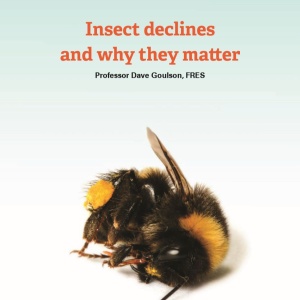
This report, commissioned by the Wildlife Trusts (a group of UK charities), summarises existing evidence on declines in insects, many types of which have substantially decreased in abundance since 1970 (see for example Worldwide decline of the entomofauna: A review of its drivers). It also explores the drivers of these declines and calls for an urgent halt to “all routine and unnecessary use of pesticides”.
According to the report, insect declines are driven by several factors, including:
- Habitat loss, including clearing natural or semi-natural habitats (such as hedgerows, downland, wildflower meadows and ancient woodlands) for farming, housing, roads, etc.
- Pesticide use on intensive farms, parks, road verges and gardens.
- Pollutants from mining and industrial processes, such as heavy metals.
- Climate change.
The report recommends:
- The UK government should set mandatory pesticide reduction targets.
- Individuals and organisations should stop using insecticides and herbicides in gardens, parks and workplaces, where possible.
- Establish a network of interconnected insect-friendly habitats in the UK, such as sowing insect-friendly seed mixes along road verges.
- Incentivise farmers to use alternatives to pesticides, such as agroecological methods or integrated pest management.
Read the full report, Insect declines and why they matter, here (PDF link). See also the Foodsource resource How do the climate and environment directly affect the conditions required for food production?












Post a new comment »